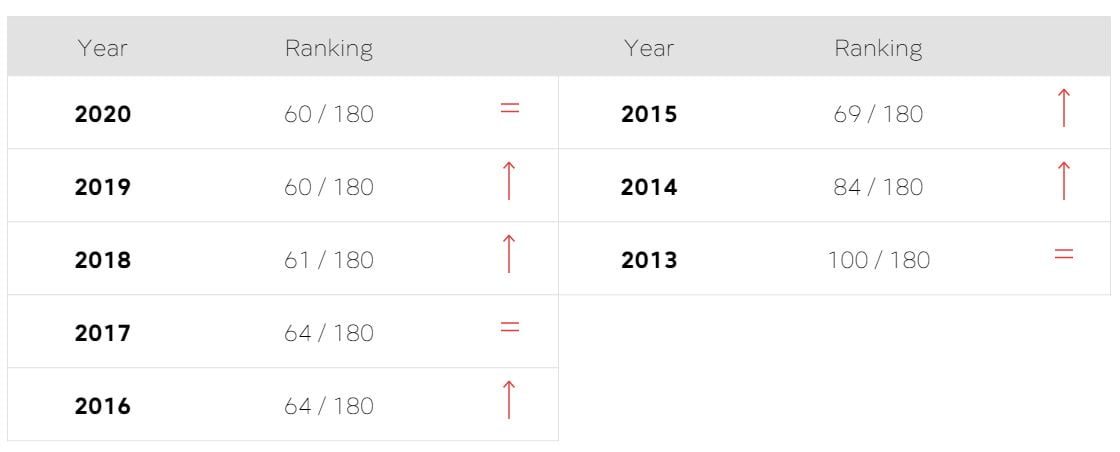Georgia in RSF Press Freedom Index 2021
Press freedom slightly worsened in Georgia, while the country’s position remained unchanged in the rankings released by Reporters Without Borders (RSF), Paris-based press freedom watchdog, on April 17.
According to the survey, Georgia is ranked 60th in the table of 180 countries with 28,64 points, marking Georgia’s media landscape as “pluralist but not yet independent.” Last year, Georgia had 28.59 points, while the country scored 28.98 points in 2019.
None of the former Soviet Union countries, except for Estonia, Latvia, and Lithuania, ranking 15th, 22nd, and 28th places, respectively, are ahead of Georgia. Armenia has 28.83 points, taking 63rd place.

Report Assessments
“Georgia’s media are pluralist but still very polarized,” the RSF says, adding that “the reforms of recent years have brought improvements in media ownership transparency and satellite TV pluralism, but owners and bosses still often call the shots on editorial content.”
According to the report, this trend was seen with “the opposition TV channel Rustavi 2, which underwent a complete change in its editorial policy after the channel was restored to a previous owner.” The report also mentions the developments around Adjara TV, the regional public broadcaster, “which began backing the ruling party after new bosses were appointed and journalists were fired.”
- RSF Alerts COE Media Platform about Adjara TV Developments
- RSF Concerned over Adjara TV Deputy Director’s Resignation
The international watchdog notes that “a disturbing trend is emerging,” pointing at the “attempts to interfere in media outlets by the security services” and by the Georgian National Communications Commission (GNCC), the regulatory body overseeing broadcasting and electronic communications, “whose prerogatives have gradually been extended to surveillance and censorship.”
RSF says that Media Critic, an online platform founded by GNCC, “examines media content and tends to discredit independent journalism.”
The report also touches upon police attacks on media workers. “Even if police violence against journalists is less frequent, police sometimes attack reporters, especially during elections, and do so with complete impunity,” the watchdog says.
The degree of freedom is determined by pooling the responses of experts to a questionnaire devised by the Reporters Without Borders. This qualitative analysis is then combined with quantitative data on abuses and acts of violence against journalists during the period evaluated.
Also Read:
This post is also available in: ქართული (Georgian) Русский (Russian)